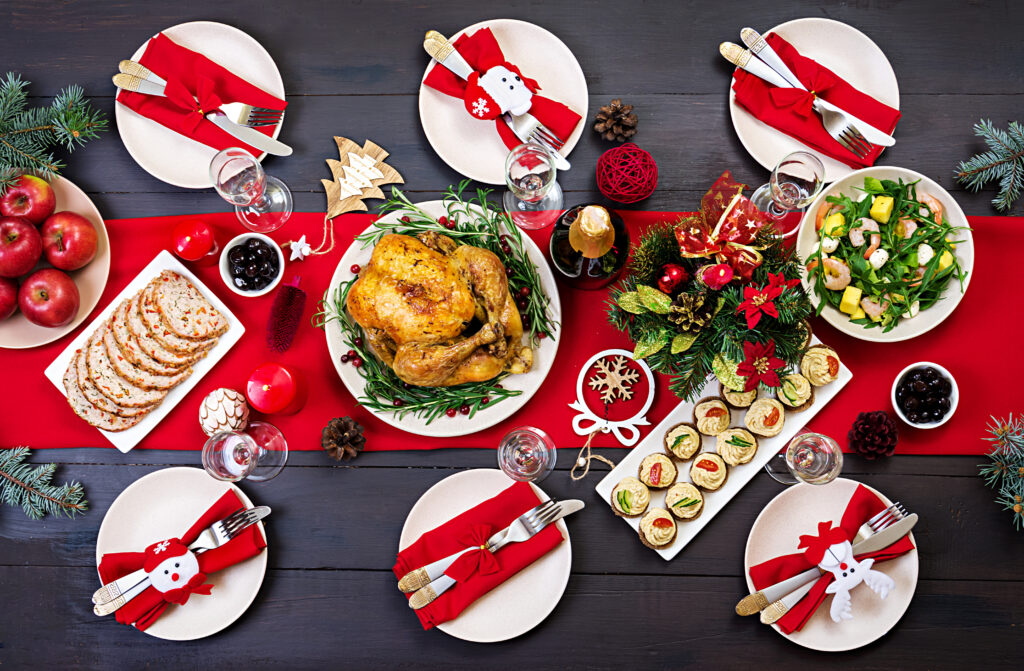The festive season can be an exciting time, but for those dealing with chronic illness, it can also be a challenging period. The hustle and bustle of holiday preparation, coupled with the stresses of navigating crowded public spaces, can leave many feeling fatigued, overwhelmed, and anxious. As a result, it’s important to plan for the holidays when living with a chronic illness. At Patient Advocate Match, we understand the difficulties that can arise during the holiday season. Our directory of healthcare services has health coaches that specialize in chronic illness if you think you might need a bit of extra help. That’s why we’ve put together this blog post to provide 8 tips for planning for the holidays when dealing with chronic illness every day along with advice to help make your holidays as stress-free as possible.

The holiday season is a time when people come together to celebrate and spend quality time with their loved ones. However, for individuals dealing with chronic illness, this time of year can also be quite challenging. It can be overwhelming to manage holiday preparations, and deal with the added stress of the season. Let’s jump in and take a look at each of the 8 tips.
1. Plan Ahead:
One of the best things you can do for yourself during the holiday season is to plan ahead. This means creating a schedule of activities and events that will take place. You should also plan for rest periods in between these events to avoid overexerting yourself. If you’re traveling for the holiday season, plan your route and itinerary in advance, so you don’t have to worry about unexpected delays.
The holiday season can be unpredictable. Plan your holiday festivities around your energy levels and schedule any appointments you may need during the holiday season, such as a visit with your doctor or specialist. It’s also important to have a backup plan in case you need to cancel or reschedule any festivities due to a flare-up.
The holiday season can be filled with a lot of events, dinners, and parties, which can be stressful for those dealing with chronic illness. Make a plan for the holiday season and stick to it. Decide which events are the most important to you and prioritize them. Remember that it’s okay to say no to events if you’re feeling overwhelmed or exhausted.

2. Be Mindful of Food:
For individuals with chronic illnesses, maintaining a healthy diet is essential, especially during the holiday season where there is always an abundance of food. Rather than depriving yourself of traditional holiday foods, be mindful of portion sizes and ingredients. Also, it’s helpful to bring along your own snacks and meals to avoid consuming foods that may be detrimental to your health.
3. Seek Support:
The holiday season can be an emotional time for anyone, but it can be especially difficult for individuals dealing with chronic illnesses. It’s important to seek support from loved ones or a support group during this time. This support can help alleviate feelings of isolation, anxiety or depression, which may exacerbate existing symptoms. It is easy to feel anxious or frustrated with your chronic illness during the holiday season when you may not be capable of enjoying the festivities as you used to or like others. Go easy on yourself. If you are feeling exceptionally down please reach out for help.
4. Practice Self-care:
Self-care is crucial during the holiday season, especially if you have a chronic illness. This includes getting enough rest, staying hydrated, and taking breaks when necessary. Self-care also means being mindful of your emotional wellbeing. It can be helpful to incorporate relaxation activities such as meditation, yoga, or deep breathing exercises into your holiday schedule.
When dealing with a chronic illness, it’s important to prioritize self-care. During the holidays, the added stress and activity can exacerbate symptoms, so make sure to prioritize self-care. It is also important to stick to your regular medication schedule to avoid any unexpected complications.

Rest is essential for those dealing with chronic illness. Make sure to get plenty of rest during the holiday season. Take breaks when you need to and don’t overdo it. Treat yourself to a relaxing bath or a good book to unwind and recharge your batteries.
It’s important to eat well during the holiday season, even if you’re dealing with a chronic illness. Foods high in sugar and fat can exacerbate symptoms, so try to avoid them as much as possible. Try to choose healthy and nutritious foods instead, such as fresh fruits and vegetables, lean proteins, and whole grains.
5. Communicate with Loved Ones:
It’s essential to communicate with your loved ones about your health needs during the holiday season. Be honest about your limitations and communicate your needs clearly. This will help prevent misunderstandings and reduce stress and anxiety for both you and your loved ones.
Establish boundaries. It’s ok to say no.
Give yourself grace.
If you will be around family that may not know your condition, let your loved ones know about your condition and your limitations, so they can understand your situation and help make the festivities more manageable for you. Be honest about how you’re feeling and let them know if you need to take a break or if you need any help.

6. Avoid Crowded Public Spaces
During the holiday season, crowded public spaces can be overwhelming and stressful, especially for those with chronic illnesses. Consider attending festive events during off-hours or opting to celebrate with a smaller group of close friends and family. You can also participate in festive activities from the comfort of your own home, such as watching holiday movies or baking cookies.
If you are immunocompromised, such as receiving chemo or other medical conditions that makes you more prone to getting sick take extra care. Don’t worry if you need to wear a mask or take other precautions. Your health is more important than possibly feeling self-conscious.
7. Don’t Be Afraid to Ask for Help
Don’t be afraid to ask for help if you need it during the holiday season. Whether it’s help with holiday preparations or assistance navigating crowded public spaces, your loved ones are there to support you. Reach out to them and let them know what you need.
8. Practice Gratitude
Finally, practice gratitude during the holiday season. Focus on the positive aspects of the holiday season, such as spending time with loved ones and creating memories that will last a lifetime. Take time to reflect on the things that you are grateful for, including your support system, your healthcare team, and your ability to manage your condition.

Conclusion:
Dealing with a chronic illness during the holiday season can be tough, but with a little planning and preparation, you can still enjoy the festivities while safeguarding your wellbeing. Prioritize self-care, plan ahead, avoid crowded public spaces, communicate with your loved ones, and practice gratitude. Remember, the holiday season is about spending time with loved ones and creating cherished memories. Don’t let your chronic illness get in the way of enjoying this special time of year. At Patient Advocate Match, we are here to support you every step of the way.
Self-care is crucial during the holiday season, especially for those dealing with chronic illness. Take time to do things that make you happy and rejuvenate your spirits. This could be anything from going for a walk in nature, practicing yoga, or treating yourself to a massage.
Thanks for taking time out of your day to stop by and check-in with our latest blog post. We hope for all to have a happy and healthy holiday season this year.
Take care and we will see you back here soon,
Pam
Patient Advocate Match, “Matching the Right Healthcare Resources for the Right Reasons.”
Resources
Now and Zen Health and Wellness
Patient Advocate Match Directory
https://www.health.harvard.edu/blog/navigating-a-chronic-illness-during-the-holidays-202112142658
https://www.washingtonpost.com/wellness/2022/12/23/chronic-illness-holiday-tips/ https://www.psychologytoday.com/us/blog/presents-mind/201912/tips-the-holiday-when-dealing-chronic-illness


